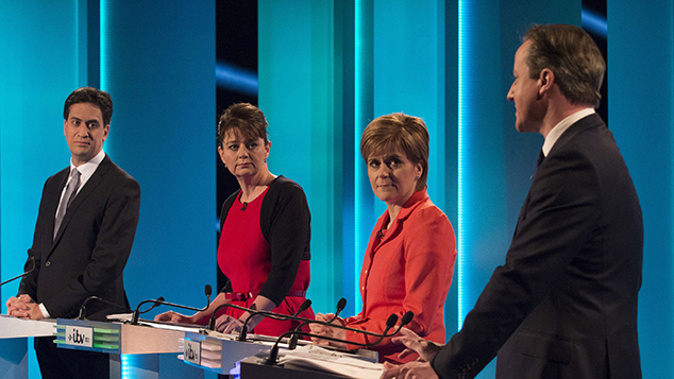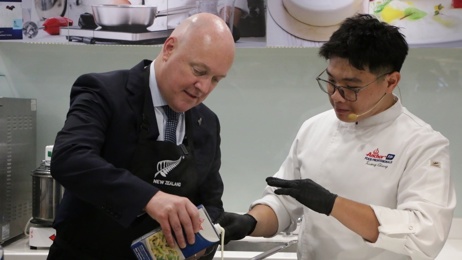
This week the democracy that has been most inspirational in the forming of New Zealand’s own system of government will go to the polls.
However, an increasingly divided Great Britain would do well to take inspiration from New Zealand’s method of electing Parliaments to prevent a fracturing of the Union along nationalistic lines.
Britain’s electoral system, the antiquated First Past the Post, generally results in wildly disproportionate and inherently unfair distributions of seats compared to the popular vote. The Liberal Democrats won less than 9% of seats in the 2010 UK election, with 23% of the popular vote. The Conservatives won almost half of the seats in Parliament with just over a third of the vote.
A voter in a marginal constituency has immense power, relative to a fellow voter in a safe seat. A small number of races every election are genuinely contested, most are foregone conclusions long before any are cast. Elections therefore become little more than glorified opinion polls. Why bother exercising a vote under fundamentally undemocratic conditions, when it is certain to have zero impact?
Unfortunately, millions of Britons take this view. The turnout in 2010 was 65.1% of eligible voters, and there hasn’t been a turnout above 70% since 1997. Compare this to New Zealand, where since the introduction of MMP the average turnout has been approximately 80%.
One reason for this gap in turnout is that almost every vote in a New Zealand election will have some bearing on the final makeup of Parliament. A party vote only becomes wasted if cast for a party that fails to meet the 5% threshold, or cannot bring list MPs in with an electorate winner.
Cynics in Britain suggest that the two major parties, the Conservatives and Labour, are unwilling to adopt a proportional electoral system as it will impact their share of seats. When the Liberal Democrats won a referendum on introducing the marginally more proportional Alternative Vote system, neither major party backed it.
However, conditions are emerging whereby parties based entirely on national identities within the larger Union will wield an immense and disproportional amount of power in the next elected Parliament. It could even result in the breakup of the United Kingdom.
The Scottish National Party, who are committed to Scotland leaving the union, are poised to dominate Scotland’s 59 constituencies. Polls indicate they will pick up 50 or more seats, despite only winning 3% of the vote nationwide, and between 50-55% of the total vote share in Scotland. This is an absurdly disproportionate share of seats to win on the back of just over half the votes in the constituencies they are standing in. The SNP have been successful because they have been able to cut across existing party support, and appeal to voters as Scottish first, over any other loyalties.
A recent referendum on Scottish Independence saw only 45% of Scottish voters backing the SNP’s position of getting out. However, with that chunk of support intact, they can easily win vast swathes of constituency races against fractured fields of other candidates. The situation is similar in Wales - where Welsh nationalist party Plaid Cymru who advocate for independence from Britain - are poised to pick up an additional seat this week. Sinn Féin are steady in Northern Ireland, they too call for the region to leave Britain.
To see the British election as a nationwide vote misses how First Past the Post elections actually work in practice. Currently there are 650 individual elections fought on local issues, where candidates are not incentivised to promote a unified national vision to the electorate.
It doesn’t have to be like this. MMP would both allow for local representatives, and would still result in a Parliament that was proportional to votes cast. It would also allow every voter to cast a vote that counted towards the final outcome, as opposed to the current wasted vote. More than half of all votes in the 2010 UK election were for losing candidates. Their voices mean nothing under FPTP.
As the Scottish Independence referendum showed, people in Britain will vote when they are given a compelling reason for using that vote. Turnout was 84.5% - a record for any election held in Britain since the introduction of universal suffrage in 1918. Adopting MMP would give all voters a reason to come to the polls. That may go a long way towards giving all Britons, regardless of their national identity, more of a stake in Great Britain.
For the major party politicians who would make the decision to put MMP up for referendum, it would be wise to remember that if the Union were to split, they would be the leaders who failed to prevent it.
Take your Radio, Podcasts and Music with you









